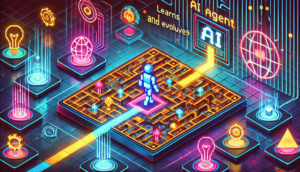Artificial Intelligence (AI) is reshaping industries at an unprecedented pace, and its impact on employment has become one of the most debated topics today. The balance between AI automation and human innovation determines how the global workforce will adapt to this technological revolution. While some fear job losses, others see opportunities for new industries, skills, and creative breakthroughs.
The Rise of Automation in the Workplace
One of the most visible effects of AI is the increase in workplace automation with artificial intelligence. Machines and algorithms are taking over repetitive tasks such as data entry, logistics planning, and even customer service. For businesses, this means higher efficiency and lower costs. However, for workers in roles that can be easily automated, it raises concerns about job security.
Innovation Through AI-Driven Tools
While automation reduces certain roles, AI also opens doors for innovation. With tools like predictive analytics, natural language processing, and intelligent design software, employees can focus on creative problem-solving and strategy. This AI-powered workplace innovation allows humans to work smarter rather than harder, creating new job categories that never existed before.
Reskilling and the Future Workforce
The shift caused by AI demands new skills. Workers must adapt to technologies that require digital literacy, critical thinking, and emotional intelligence. Governments and businesses are now investing in AI reskilling programs for employees to prepare the workforce for emerging industries. Lifelong learning will become a necessity in an AI-driven economy.
Balancing Automation and Human Creativity
AI may excel in speed and accuracy, but it cannot replace human imagination, empathy, and ethical judgment. The future of work depends on finding harmony between automation and human talent. By leveraging AI for creative collaboration, organizations can enhance productivity while keeping people at the heart of innovation.
Ethical and Social Considerations
Beyond economics, the adoption of AI also raises questions about fairness and inclusivity. Policymakers must ensure that technological progress does not widen inequality. Media platforms like YeemaNews play a vital role in raising awareness and encouraging dialogue about responsible AI development in the workplace.
Conclusion: A Future of Collaboration
AI and the future of work are not simply about replacing humans with machines. Instead, it is about creating a balance where automation handles routine tasks and humans focus on creativity, strategy, and leadership. By embracing AI-driven workplace transformation, societies can unlock innovation while ensuring that technological progress benefits everyone.



More Stories
Do minesweeper sessions test bitcoin gambling patience?
Understanding Liquidation in BTC Leverage Trading and How to Avoid It
London’s Premier Nuru Massage Studios and What They Offer